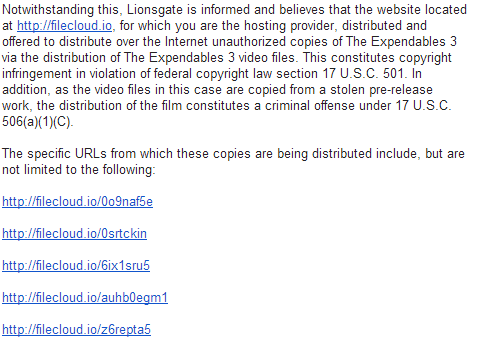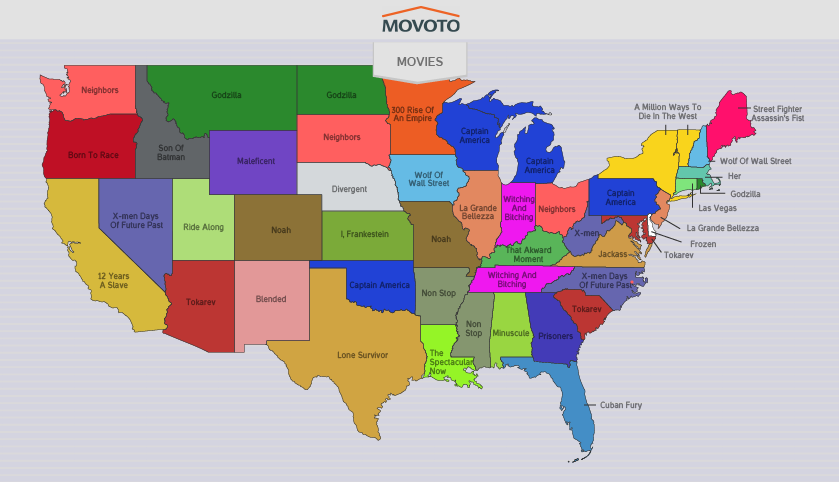Anti-Piracy Outfit Wants to Hijack Browsers Until Fine Paid
samedi 16 août 2014 à 19:19 Many rightsholders around the world are looking for ways to cut down on Internet piracy and US-based Rightscorp thinks it has an attractive solution.
Many rightsholders around the world are looking for ways to cut down on Internet piracy and US-based Rightscorp thinks it has an attractive solution.
The company monitors BitTorrent networks for infringement, links IP addresses to ISPs, and then asks those service providers to forward DMCA-style notices to errant subscribers. Those notices have a sting in the tail in the shape of a $20 settlement demand to make supposed lawsuits go away. The company says 75,000 cases have been settled so far with copyright holders picking up $10 from each.
Earlier this year the company reported that its operation cost $2,134,843 to run in 2013, yet it brought in just $324,016, a shortfall of more than $1.8 million. With the second quarter of 2014 now in the bag, Rightscorp has been reporting again to investors. TorrentFreak has seen a transcript of an August 13 conference call which contains some interesting facts.
In pure revenue terms the company appears to be doing better, $440,414 during the first six months of 2014. However, operating costs were $1.8m compared to $771,766 in the same period last year. Bottom line – the company lost $1.4m in the first six months of 2014.
Still, Rightscorp is pushing on. It now represents the entire BMG catalog, plus artists belonging to the Royalty Network such as Beyonce, Calvin Harris and Kanye West. And, as previously reported, it’s now working with 140 ISPs, some of which are apparently disconnecting repeat infringers.
Interestingly, and despite the ISP removing settlement demands from infringement notices, Comcast subscribers are apparently handing cash over to Rightscorp too. How this is being achieved wasn’t made clear.
What is clear is that Rightscorp is determined to go after “Comcast, Verizon, AT&T, Cable Vision and one more” in order to “get all of them compliant” (i.e forwarding settlement demands). The company predicts that more details on the strategy will develop in the fall, but comments from COO & CTO Robert Steele hint on how that might be achieved.
“So we start in the beginning of the ISP relationship by demanding the forwarding of notices and the terminations,” Steele told investors.
“But where we want to end up with our scalable copyright system is where it’s not about termination, it’s about compelling the user to make the payment so that they can get back to browsing the web.”
Steele says the trick lies in the ability of ISPs to bring a complete halt to their subscribers’ Internet browsing activities.
“So every ISP has this ability to put up a redirect page. So that’s the goal,” he explained.
“[What] we really want to do is move away from termination and move to what’s called a hard redirect, like, when you go into a hotel and you have to put your room number in order to get past the browser and get on to browsing the web.”
The idea that mere allegations from an anti-piracy company could bring a complete halt to an entire household or business Internet connection until a fine is paid is less like a “piracy speeding ticket” and more like a “piracy wheel clamp”, one that costs $20 to have removed.
Except that very rarely are Rightscorp looking for just $20.
According to comments Steele made to investors, “very few” people targeted by his company pay a fine of just $20, even though that’s what most of them believe to be the case after Googling the company.
“[For] most people, piracy is a lifestyle, and so most people are getting multiple notices,” Steele explained. “So we’re closing cases everyday for $300, $400, $500 because people got multiple notices.”
One of the ways Rightscorp achieves these inflated settlements is by having a headline settlement fee of $20, but not applying that to a full album. By charging $20 for each and every album track, costs begin to climb.
So, while someone receiving an initial infringement notice might think the matter can be solved by paying $20, after contacting the company they realize the matter is much more serious than first believed. At this point the company knows the name and address of the target, something they didn’t initially know. Now the pressure is really on to settle.
Finally, we come to the question of success rates. We know that 75,000 cases have been settled overall, but how many people have simply ignored Rightscorp notices and moved on. One investor indirectly asked that question, but without luck.
“At the moment we consider that trade secret,” Steele said.
Source: TorrentFreak, for the latest info on copyright, file-sharing and anonymous VPN services.







